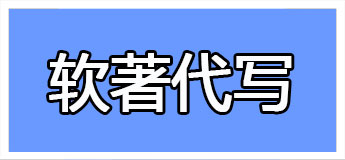
All You Need to Know about Copyright: Understanding Your Rights as an Author
As an author, it's essential to protect your creations through copyright laws. This legal concept grants you exclusive rights to control the use of your work and allows you to receive payment for its use. However, copyright laws can be complex, and it's crucial to understand your rights and obligations regarding your works.
What is Copyright?
Copyright is a legal concept that grants the author of a creative work the exclusive right to control and use their creation. The law covers various types of works, including literary, musical, artistic, and software. Copyright owners have the right to reproduce, distribute, display, and perform their creations publicly. They also have the right to allow and prohibit others from using their work.
What are the Exclusive Rights of Copyright Holders?
The copyright owner has six exclusive rights, as follows:
1. Reproduction Rights: The right to make copies of the work.
2. Distribution Rights: The right to distribute copies of the work to the public.
3. Display Rights: The right to display the work publicly.
4. Performance Rights: The right to perform the work publicly.
5. Derivative Works Rights: The right to prepare derivative works based on the original work.
6. Moral Rights: The right to protect authorship reputation, such as the right to have their name appear on the work.
What Works Are Covered by Copyright?
Copyright laws cover a broad range of original works, including:
1. Literary works, including books, articles, essays, and other written works.
2. Musical works, including songs, compositions, and sound recordings.
3. Dramatic works, including screenplays, plays, and other performance art.
4. Pictorial, graphic, and sculptural works, including photographs, paintings, and sculptures.
5. Motion pictures and audiovisual works.
6. Copyrighted software.
How Long Does Copyright Protection Last?
Copyright protection typically lasts for the life of the author plus 70 years after their death. However, the length of protection depends on the type of work and the date of creation. For instance, works created before 1978 abide by different rules than those created after that date.
What is Fair Use?
Fair use is an exception to copyright laws that allows for limited use of copyrighted materials for certain purposes without the owner's permission. The law aims to support activities such as criticism, comment, news reporting, teaching, scholarship, and research. However, determining what constitutes fair use can be challenging and requires considering several factors, such as the purpose of use, the nature of the work, and the amount used.
What Should You Do to Protect Your Copyright?
To protect your copyright, you should:
1. Create original works.
2. Register your copyright with the relevant government agency.
3. Add a copyright notice to your work.
4. Monitor your work and take action against infringement.
In conclusion, copyright law is a crucial component of protecting your creative works, and you must know your rights and responsibilities as an author. Registering your copyright, adding a notice, and monitoring your work are critical steps to ensure that you can take action against anyone who infringes on your rights. With proper education and diligence, you can safeguard your creations and ensure that you receive the recognition and compensation you deserve.
上一篇:内蒙古软件著作权申请流程下一篇:深度解析标题软件著作权加计扣除政策
软件著作权说明书代写
一、《申请表》《说明书》《源代码》3个文档
二、300元/案子,3天内交付
三、电话/微信:139-9853-9835




